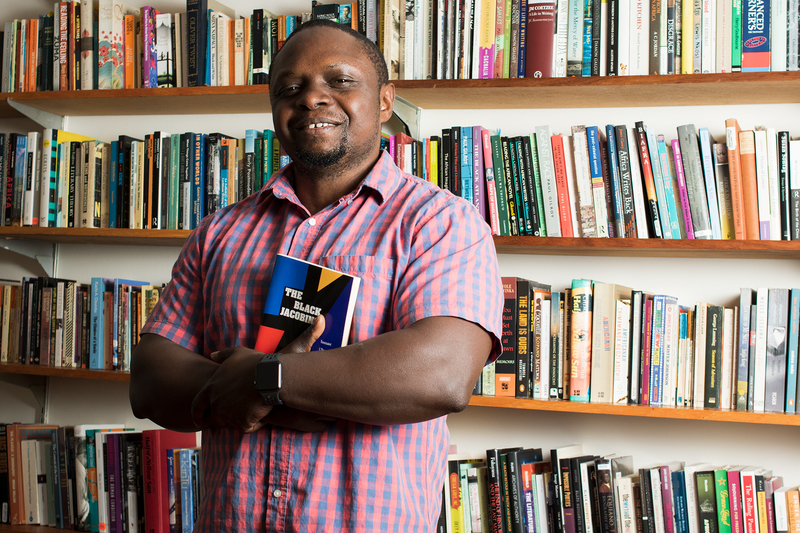5 questions with Chris Ouma, African literature researcher
30 September 2019 | Story Staff writer. Photo Libby Young. Read time 3 min.
1. Briefly, what has been your career path to date?
I did my undergraduate degree at Moi University in Kenya, then my master’s and PhD at Wits University in the department of African literature. Afterwards, I held a postdoctoral fellowship at the University of Johannesburg before starting at UCT in August 2012.
2. Can you describe in simple terms your main research interest?
I have just finished a book on representations of childhood in contemporary African literature. The book looks at childhood in relation to memory and time, in contexts of war, in contexts of migration and diaspora, as well as in relation to sexuality.
I have now embarked on a study that looks at how small/literary magazines contributed to pan-African imagination in mid-20th century Africa.
“My research hopes to bring to the classroom at UCT a broader awareness of why African literature is pertinent to the decolonisation of imagination.”
3. Why is it important to study African literature in this way?
African literature is where the project of decolonisation in Africa began within the African academy. It is also where we can locate South Africa’s place – particularly black South African intellectual traditions – in the long 20th century where the project of anti-colonialism intersected with anti-apartheid activisim, within the broader framework of pan-Africanism in the continent and in its diasporas.
4. What do you hope to achieve through your research?
My research hopes to bring to the classroom at UCT a broader awareness of why African literature is pertinent to the decolonisation of imagination. To allow students in ‘post-apartheid’ South Africa to be able to locate and imagine themselves, their struggles and their identities as connecting, and as always connected, to others within the continent and its diasporas.
5. What do you find most rewarding about your work?
The privilege of encountering and interacting with hundreds of brilliant young minds every day in the classroom while sharing with them the imagination of a continent that we all share in its complexity and diversity. This is precious and it is humbling. It grounds me.
 This work is licensed under a Creative Commons Attribution-NoDerivatives 4.0 International License.
This work is licensed under a Creative Commons Attribution-NoDerivatives 4.0 International License.
Please view the republishing articles page for more information.










